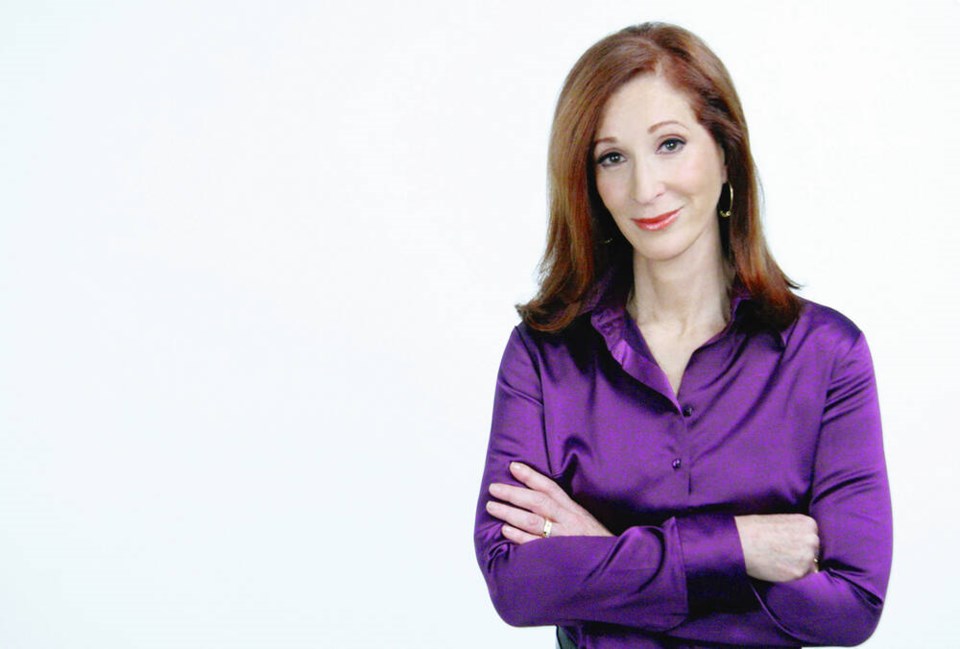Dear Ellie: I “don’t get it,” says my wife. She must be correct, because I truly don’t understand what she means.
We’ve been married for 12 years, now both mid-40s, with three children — a boy, 11, a girl, eight, and another boy, six.
My wife insists that I have no idea that the house and the kids’ schedules all rely on her efforts. But she doesn’t acknowledge the realities of “our” life.
She does good work in the community, for which I respect her. I have a full-time job in a competitive business, and work 10 hours daily, sometimes adding two hours at home.
Unfortunately, I often miss a family-time dinner, but then I try to have the kids join me at the table and encourage each to describe their day.
Whenever possible, weekends are my “family time.” The kids and I hike, ride bikes, play street hockey, etc.
During these weekends, my wife maintains her community efforts, helping out at a food bank in our area, plus collecting and distributing clothing for the homeless.
I believe we’re both equally busy for good reasons. The rewards of my job make it possible for us to live comfortably. My wife’s community work gives her purpose and achievement. Since she chooses her own working hours, she can prep the kids’ meals as needed.
Yet she states that I’m not contributing equally regarding our home life, our kids and especially not to each other.
I still love my wife/partner regarding our children. But I don’t accept the “failings” she finds in me, regarding our marriage.
I’d appreciate your perspective on all this.
Not Getting It
You’ve both chosen two different roads, but they are not purposefully divisive.
Family life has created a pattern for very decent reasons. Yet, too wide a gulf was created. You plunge into father-mode on weekends whenever possible. Meanwhile, she’s made a dinner you missed and is exhausted from seeking clothing and food for needy others.
It’s time to nurture your own family, all together. A few hours having children stock shelves at the food bank will be a life lesson. And everyone, including you, baking cookies together can be as much fun as eating them.
Join your wife when possible, and she’ll see that you do “get it” and have a lot more to give to each other.
Dear Ellie: I’m a woman, late 30s, divorced, like my mother predicted. From my preteens on, she said “never trust a man.”
I loved my father, and the weekly visit when we did something together with my two older brothers, like bowling, going to movies or ice-skating in winter.
But if he came to pick me up at my mom’s house, she’d scream for him to leave, and the boys had to guard and lock the door. It was so upsetting; I can still feel triggered by it.
My divorce was far less traumatic because we both recognized that too many background differences divided us.
Now, alone and single for four years, I’m interested in meeting someone for a relationship, but terrified of choosing wrongly. I can’t handle a second mistake.
Needing Trust, Not Trauma
Let that be your mantra. Also, approach online dating slowly. If a conversation sparks your interest, be friendly but in go-slow mode. If the person rushes to connect immediately, or ghosts you instead, forget him.
You want to meet someone as sincere as yourself. If that’s not clear, create your own private list of must-be requirements: Mine would be Honesty, Sincerity, Trust. If it’s apparent that your requirements aren’t being met, say so and move on.
Reader’s Commentary Regarding telling a sister that her fears for her sibling were correct, but unfortunately not strong enough in guiding her sibling in the right direction (Oct. 11):
“Children in parks at night are extremely vulnerable to abuse, exploitation, and manipulation by adult men, especially when these children are also being given addictive intoxicants.
“There’s probably an additional reason why this child is leaving her house in the middle of the night to abuse substances. If the children aren’t comfortable communicating with their parents, they need to be helpfully pointed in the direction of other available support services.
“Unfortunately, I speak from personal experience as a survivor of such a background. I hope you can respect my privacy in providing this response, which is given in the interest of supporting these children and others who may read the column and recognize themselves (as I did.)
“Thanks for this opportunity.”
Ellie’s tip of the day
Periodic relationship “checkups,” can be a positive couples’ connection.
Send relationship questions to [email protected] or [email protected]



